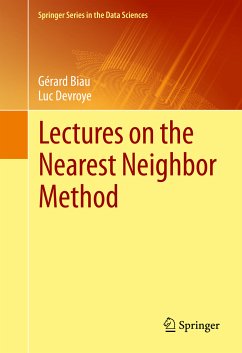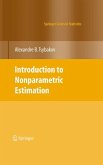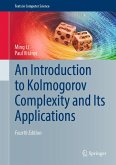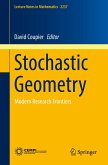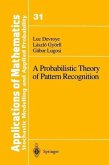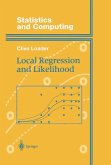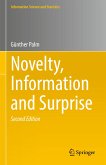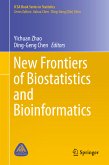Gérard Biau is a professor at Université Pierre et Marie Curie (Paris). Luc Devroye is a professor at the School of Computer Science at McGill University (Montreal).
Dieser Download kann aus rechtlichen Gründen nur mit Rechnungsadresse in A, B, BG, CY, CZ, D, DK, EW, E, FIN, F, GR, HR, H, IRL, I, LT, L, LR, M, NL, PL, P, R, S, SLO, SK ausgeliefert werden.

